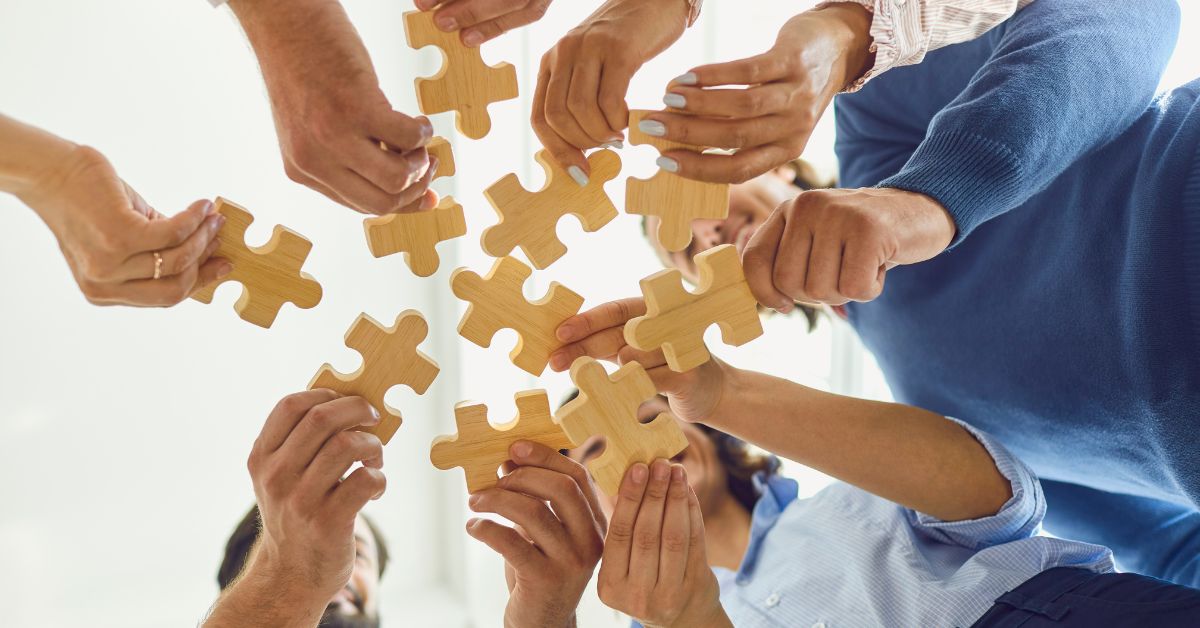When your child is tangled in the web of addiction, every day can feel like an uphill battle, not just for them but for you as well. As a parent, you might be wondering, “Is there a role for me in my child’s journey to recovery? Can I really make a difference?” It’s only natural to feel a mix of hope and helplessness, but let me tell you, you’re far from powerless.
Think about this: How might the family dynamic shift when everyone pulls together to support a loved one in need? Is it possible that your involvement could be the anchor your child needs to stay grounded during the storms of recovery? These aren’t just idle questions—they’re at the heart of a conversation that could change the course of your child’s life.
In this post, we’re going to unlock some truths about family involvement in substance abuse treatment. We’ll explore not only the impact it has on your child’s path to sobriety but also how it transforms you and your family as a whole. If you’re sitting there, with your heart aching for your child and your mind searching for answers, stay with me. Together, we’ll delve into the ways your love, support, and participation could be the lifeline your child has been waiting for.
How Crucial Is Family Involvement in Substance Abuse Treatment?
Research from the National Institute on Drug Abuse highlights the importance of family involvement in the treatment of substance abuse. When the whole family engages in the healing process, it creates an environment where the addicted family member can feel a greater sense of support and understanding.
Family therapy, a key component of many comprehensive programs, involves family members in counseling sessions. It opens lines of communication and helps everyone within the family learn coping strategies and reinforce good behavior patterns. This involvement can enhance the addicted individual’s motivation and improve treatment outcomes.
What Are the Benefits of Including Family in the Treatment Process?

Many parents have been in the same place you are now. Everything starts with a twist. Maybe you smelled something weird in your house or found a sketchy stash in your kid’s room. It’s an overwhelming sensation, but you must be there for those you love. Supporting them from the beginning to the end can make a huge difference.
Including family members in addiction treatment has been shown to reap rewards that go beyond the immediate. For one, it helps establish a routine that supports a drug-free lifestyle, incorporating support within the family unit. This participation can also increase the likelihood of the individual maintaining sobriety in the long term.
Moreover, family involvement can help in recognizing and changing unhealthy dynamics that might enable addiction. By understanding the role each person plays, the family can work towards a better way of living together, supporting their loved one’s recovery in a more effective manner.
What Does Participation of the Whole Family Mean for a Loved One’s Recovery?
It can go as early as confronting your child or even deciding to drug test them, up to the rehabilitation process; when the whole family participates in the healing process, it sends a clear message of unity and support to the individual struggling with addiction. This collective effort can dramatically enhance the recovery experience by providing a network of support that reinforces the commitment to sobriety.
It’s about more than just moral support; it’s about the family learning together what addiction entails and how to best support their loved one. A united family can interrupt the cycle of addiction and help the individual recover in a more stable and loving environment.
WATCH: Free, confidential workshop that explains how to "Love Another Way"
How Can Families Heal Together Through the Recovery Process?
Healing together means recognizing that addiction is a family disease—it affects everyone, not just the person who is addicted. Through this journey, families can address the toll that substance use disorder has taken on their relationships and work on healing those wounds.
The process can be transformative, allowing families to become healthier and more resilient. Whether you’re dealing with a teenager or a drug-addicted adult, by participating in family therapy sessions and open dialogues, they can work through issues and learn to support each other more healthily.
Through family therapy, members learn about the disease of addiction. Knowing how it affects everyone, and how to communicate in ways that reinforce recovery, it’s vital for this process. Counselors guide families in developing vigilance against enabling behaviors and in fostering an environment of encouragement and accountability.
What Role Does Family Support Play in Preventing Relapse?

Family support isn’t just a comforting shoulder to lean on; it’s a vital pillar in the shaky bridge to recovery. Let’s explore how a family’s understanding and involvement can be the difference-maker in keeping someone you love on the straight path, away from relapse’s shadow.
Understanding the Journey to Recovery
If you have a loved one who’s fighting to stay clean, it’s like they’re on a long hike through some tough hills and valleys. Imagine you’re walking with them, not to carry their backpack, but to cheer them on and to be there if they stumble. It’s a journey, you see, and not just a quick stroll around the block.
This journey starts in adolescence, which is the ideal time to prevent these issues. Unfortunately, not everything can go as we, as parents, plan for our kids. However, that’s not a good enough reason to throw the towel with those we love and care for.
Recovery is a road that’s often bumpy, and it can take a lot out of a person. Your job as a family member isn’t to fix everything but to be a steady presence. Let’s start with how your understanding and support can help keep your loved one on the path forward.
Creating a Supportive Environment
- Know the Route: Be aware of what your loved one is going through. Learn about addiction and the healing process. This knowledge is like a map that can help you understand the direction they’re heading.
- Watch for Signs: Keep an eye out for the things that might make your loved one trip up. These could be certain people they hang out with, places they go, or feelings they have. You’re like a lookout, helping them navigate through tricky spots.
- Safe Havens: Help make home a place where stress is low and understanding is high. It’s like setting up a camp where they can rest, knowing they’re safe from the things that make the journey harder.
NEW: How to make the shift from "Mom Code" to prioritizing your own well-being
Being Vigilant Without Judgment
- Recognize Early Warnings: Learn the early signs of a possible relapse. It might be changes in mood, sleep, or behavior. It’s not about spying on them but about noticing when they might need a bit more support.
- Stay Calm: If you think a relapse might be coming, it’s important to stay calm. Reacting with anger or disappointment can push them away. Instead, it’s like offering a hand if they’ve slipped on the path.
- Encourage Openness: Make sure they know it’s okay to talk about cravings or struggles. The more open the communication, the easier it is to face challenges together.
Providing a Sense of Security and Understanding
- Be There: Just being around can be a big comfort. Let them know you’re there for the long haul, through thick and thin.
- Listen: Sometimes, what your loved one needs most is someone to listen. Not to give advice or to judge but to simply hear what they’re going through.
- Celebrate the Wins: Don’t forget to acknowledge the progress they’ve made. Every step forward is worth recognizing.
Remember, your role in preventing a relapse is important, but it’s also important to take care of yourself. You can’t pour from an empty cup, so make sure you have the support you need, too. It’s like making sure you have the right gear for that hike so you can be the best support for your loved one.
How Do Healthy Boundaries Contribute to Successful Recovery?
Setting healthy boundaries is a critical aspect of successful recovery. It’s about finding a balance between supporting a loved one and not enabling their addiction. Families must learn what constitutes healthy support versus behaviors that might inadvertently contribute to continued substance misuse.
Healthy boundaries protect both the individual in recovery and the family members from the emotional strain that addiction can cause. They reinforce a sense of personal responsibility and accountability, which are key components of a successful recovery journey.
SEE: Find out why your boundaries keep getting crossed (and how to reinforce them)
What Ongoing Support Can Families Provide in Outpatient Treatment?

When your loved one is in outpatient treatment, they’re not staying in a facility; they’re living at home with you. And that means your role in their recovery gets a whole lot more hands-on. Think of yourself as part of their support team. You’ll find yourself doing things like keeping track of the timing of their counseling sessions. Maybe even driving them there if they need a lift.
It’s also really important to make sure your home is a safe haven for them. You’re aiming to create a place that’s free from substances that could trip them up on their road to getting better. This is like setting the stage for their success; every little positive change in the environment can make a big difference.
And just remember, it’s not just about the practical stuff. The emotional support you give, the way you listen and offer a shoulder when things get tough, that’s just as crucial. It’s about being there, physically and emotionally, as they work through this tough journey.
Family Involvement Can Make a Difference in the Long Run
It’s clear that the role of family in this process is nothing short of vital. It’s like you’re part of a team where each member’s support is a brick in the foundation of your loved one’s sobriety. The journey of addiction recovery is a winding road, and it’s one that your child doesn’t have to walk alone. You can light the path ahead for your loved one. Understand the nature of addiction. Set up a supportive home environment.
But this path isn’t necessarily a straight one, and it’s okay to need a road map or a helping hand along the way. If you find yourself with questions or in need of guidance as you navigate your role in your child’s recovery, don’t hesitate to reach out. We’re here to support you just as you support them.
Frequently Asked Questions About Family Involvement in Substance Abuse Treatment
Why is it important to involve the family in the treatment process?
Involving the family in the treatment process is important because it provides a support system that is crucial for the person’s recovery. When the family gets involved, they learn how to create an environment that can help their loved one stay on track. This involvement isn’t just about emotional support; it’s also about understanding the nature of addiction and the strategies for managing it. It’s like having a team in your corner. Each member learns their role in the recovery journey. This can be a game-changer for the person battling addiction.
How can you involve your family in the treatment and recovery process?
You can involve family in the treatment and recovery process by encouraging open communication, participating in family therapy sessions, and providing education about addiction. Think of it as building a bridge between the person who’s working on getting better and the people who care about them the most. Family members can learn about boundaries, how to avoid enabling behaviors, and how to be supportive without shouldering the entire burden. It’s about working together so everyone understands how to help in the most effective way possible.
WATCH: Free, confidential workshop that explains how to "Love Another Way"
What are the effects of Substance Abuse in the family and the community?
The effects of Substance Abuse in the family and the community can be far-reaching and deeply impactful. Within families, trust can erode. Relationships can fracture. The emotional well-being of each member can suffer. It’s almost like a stone being thrown into a pond – the ripples extend outward, touching everything in their path. In communities, substance misuse can contribute to crime, economic struggles, and a general decline in health and social cohesion. It affects the fabric of society, not just the individual caught in the struggle.
